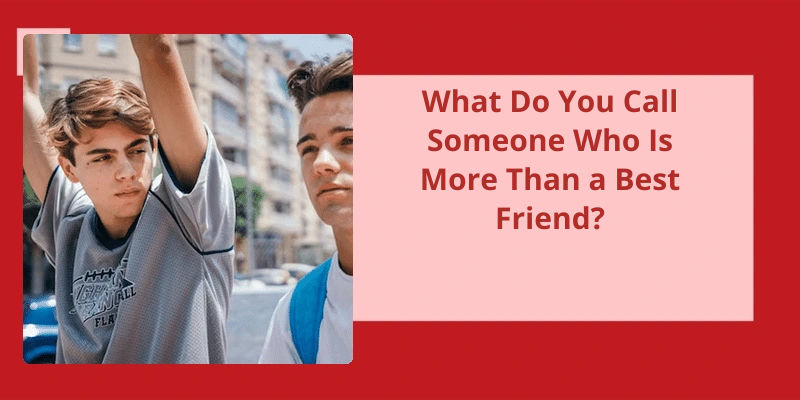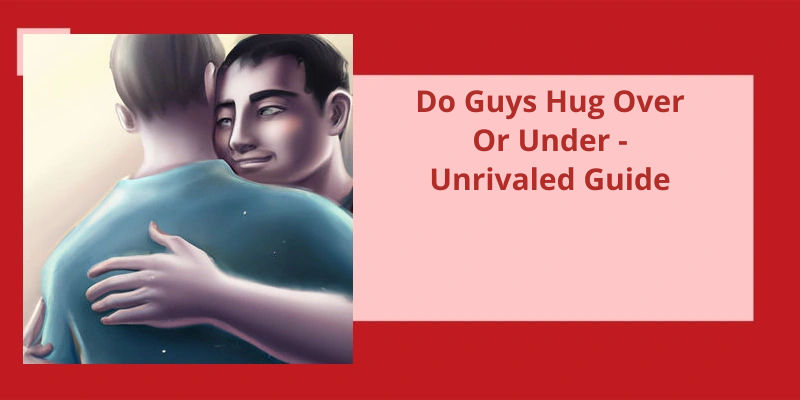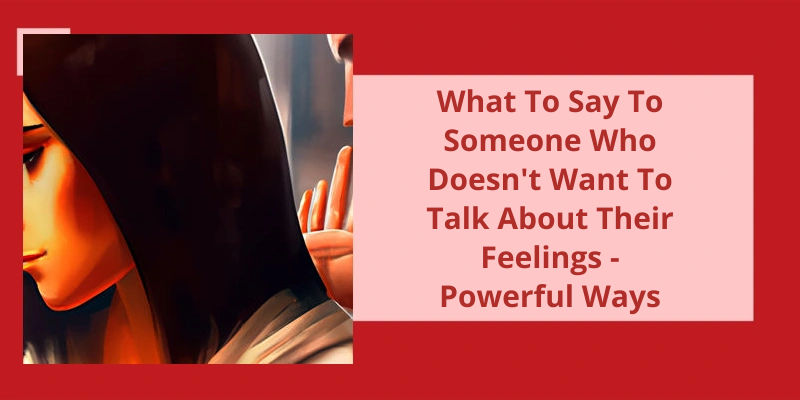They’re more than just a casual acquaintance or a passing acquaintance, but rather, they’re individuals who we trust implicitly and with whom we’ve shared countless experiences and moments. Whether it's through shared interests, common goals, or just a deep understanding of one another, a close friend is someone who we turn to in good times and bad, and who provides unwavering support and guidance. So, what do you call someone who’s more than a best friend? The answer is simple – a close friend.
What Is More Than a Best Friend?
Having a close friend is one of the most rewarding experiences one can have in life. Someone you can trust and rely on through thick and thin, they’re often the first people we turn to during our times of need. However, there may come a time when a relationship with your best friend deepens further into something more significant. You may realize that they truly understand you in a way that others cannot, and that your bond transcends the typical friend zone. At this point, the term soulmate may come to mind.
A soulmate is someone who connects with us on a deeper level, and their presence in our lives is almost necessary for us to feel whole. They understand our quirks and nuances, and support us through challenges in ways that no one else can.
In fact, many people have soulmates who they’ve never even dated, and they may not even be attracted to each other in a physical sense. Rather, their connection is purely based on emotional and intellectual compatibility.
Some people are lucky enough to have multiple soulmates in their lifetime, while others may only experience this kind of connection with one person. Regardless, having a soulmate is a rare and precious gift, and we should cherish and nurture these relationships with the utmost care and respect.
Signs That Your Friendship Is Turning Into Something More Meaningful
Possible short explanation:
When a friendship starts to develop romantic or sexual undertones, there may be some signs that indicate a shift towards something more meaningful. These signs could include increased physical touch or flirting, mutual attraction or jealousy, deeper emotional intimacy or vulnerability, more time and attention spent together, or conversations about the future of the relationship. However, not all friendships that show these signs will necessarily lead to a romantic or sexual relationship, and it’s important to communicate openly and respectfully with your friend about your feelings and boundaries.
When it comes to describing our closest and most cherished friend, the term “best friend” often comes to mind. But what exactly does this term mean? At it’s core, “best friend” is a term of endearment used to express love and affection for someone who holds a special place in our hearts. In this article, we’ll explore what it means to have a best friend and why these relationships are so important in our lives.
What Is Best Friend in Simple Words?
To put it simply, a best friend is someone who’s your closest confidant and companion. They’re the person you turn to when you need advice, support or just a good laugh. Your best friend is the person who knows you inside out, your likes and dislikes, your strengths and weaknesses, and still loves you for who you are.
The bond between best friends is a special one. It’s built on trust, loyalty, and mutual respect. Friends come and go, but a best friend is someone who’s there for life. They’re like family, and no matter how much time goes by between meetings, you know that they’ll always be there when you need them.
Best friends are important for our overall well-being. They provide emotional support, boost our confidence and self-esteem, and make life more enjoyable. The laughter, the inside jokes, and the shared experiences are all part of what makes a best friend so special.
They’re your confidant, your companion, and your cheerleader. Having a best friend enriches our lives in countless ways, and we should never take them for granted.
How to Maintain a Long-Lasting Friendship?
Building a long-lasting friendship requires effort, patience, and understanding. It’s important to communicate openly and honestly with your friend, listen to their point of view, and respect their boundaries. Give them space when they need it, and make time for them when they’re feeling low. It’s also important to celebrate each other’s successes and be there for each other during tough times. By doing so, you can build a strong foundation that will last a lifetime.
When it comes to describing our closest companions, many of us turn to the term “best friend” or “BFF.” However, there are a plethora of alternative words and phrases that can express the depth of our relationships with those we hold dear. From “boon companion” to “childhood friend,” these descriptors offer a range of nuances and meanings that are worth exploring.
What Is Another Word for Best Friends Forever?
When it comes to close relationships, few bonds are as cherished as our best friends. The term “best friends forever” has become synonymous with a deep, enduring connection between two people who’ve been through thick and thin together. But what other words can we use to convey the same sentiment?
One alternative to “best friends forever” is “boon companion.”. This phrase conveys a sense of partnership and camaraderie, suggesting that the two individuals aren’t just friends but allies in all areas of their lives. Boon companions are often seen as adventure seekers, ready to take on the world together and face whatever challenges come their way.
Another word that can be used to describe a close friend is “long-time friend.”. This term emphasizes the length of the relationship and the fact that the two individuals have known each other for a significant amount of time. Long-time friends often share a rich history, with many stories and memories that have been accumulated over the years.
Similarly, we can use the phrase “long-term friend” to describe someone who’s been a constant presence in our lives over an extended period. Unlike acquaintances or casual friends, long-term friends are a dependable source of support and comfort, no matter what life throws our way. They’re the ones we can always turn to for advice, a listening ear, or a good laugh.
For those who value consistency and dependability in their friendships, the phrase “constant friend” may be a more fitting alternative. This term emphasizes the reliability of the bond between two people, suggesting that no matter how much time has passed or how many ups and downs they’ve experienced, their connection remains steadfast and unchanging.
Finally, we’ve the term “childhood friend,” which refers to someone we’ve known since our early years of life. Childhood friends often share a special bond, having grown up together and navigated the joys and challenges of youth side by side. Even if we don’t see them as often later in life, childhood friends remain a cherished part of our personal history and can bring a sense of comfort and familiarity when we reconnect with them.
Having a best friend is one of the most cherished relationships in our lives. Someone who we can lean on, confide in and share all our joys and sorrows without any inhibitions. It’s a beautiful feeling to be someone’s bestie, and knowing that you’ve a special place in their heart. But have you ever wondered what does it really mean when someone says, “you are my bestie?” Let’s delve deeper into this term and explore it’s significance in our lives.
What Does It Mean When Someone Says You Are My Bestie?
When someone calls you their “bestie,” it means they consider you to be their closest and dearest friend. It’s an affectionate and informal term that typically conveys a sense of warmth, trust, and camaraderie.
When youre someones bestie, youre the person they turn to when they need someone to talk to, vent to, or just spend time with. Besties are the people who know you best, who can finish your sentences, and who always have your back. Theyre the people you can laugh with, cry with, and share your deepest secrets with.
Of course, being someones bestie isnt just about receiving love and support; it’s also about giving it. When youre someones bestie, you take on a special responsibility to be there for them whenever they need you. You become their confidante, their advisor, and their champion. And in return, they do the same for you.
Friendships play a vital role in our lives, and each type of friend we’ve serves a unique purpose. In this article, we will explore the seven different kinds of friends that people commonly have and how they enrich our lives in different ways. From acquaintances to lifetime friends, let’s delve into the various types of friendships and why they matter.
What Are the 7 Types of Friends?
Friendship is one of the most significant aspects of human life. Friends make life worth living. They fill our lives with joy, laughter, and meaningful connections. Over the years, psychologists have studied friendships and have identified different types of friends. The seven types of friends are acquaintances, work friends, casual friends, close friends, the one you take care of, best friends, and lifetime friends.
Acquaintances are people you meet on a few occasions and exchange greetings. They aren’t necessarily people you’ve a strong bond with, but they’re an essential part of our lives. You may see them at the gym, at the grocery store, or other public places regularly. They add to our social network and may eventually become closer friends.
Work friends are people you spend time with at work, but you don’t necessarily socialize with outside of the workplace. They share the same work environment, and over time, you may get to know them better, have lunch together, and even share your personal lives with them.
Casual friends are people with whom you’ve a more significant connection than acquaintances, but they aren’t necessarily close friends. They’re people you see and hang out with once in a while, like going for coffee or attending events. You don’t share intimate details of your personal or private life.
Close friends are the type of friends with whom you share intimate details of your life. They know your likes and dislikes, your fears and hopes, and vice versa. They’ll support and encourage you and are there for you in challenging times. You can be true and honest with them without any fear of judgement.
The one you take care of is a type of friend who relies on you and trusts you with their life. They see you as a caregiver, and you provide emotional support, advice, and take care of them when they need it. They may be going through a challenging time, coping with personal issues or illness, or simply need a helping hand. You’re at the center of their support network.
Best friends are the type of friends who know you better than anyone else. They’ve your back, support, and encourage you in everything you do. They can make you laugh, comfort you, and make you feel loved. They’re there for you through thick and thin and share your values.
Lifetime friends are the type of friends who you’ve known for many years. They’ve seen you grow, evolve, and change. You’ve shared milestones and life experiences, and they’ve been there for you through it all. You may not see each other frequently, but when you do, you pick up right where you left off. These friends are forever friends.
Source: The 7 Types of Friends – Mom’s Choice Awards
Conclusion
While some may argue that this term isn’t as specific or evocative as others, such as "soulmate" or "kindred spirit," it’s simplicity and inclusivity make it a valuable addition to our vocabulary. Ultimately, what matters most is the quality of the connection we’ve with these special people and the role they play in shaping who we’re and who we want to be.






